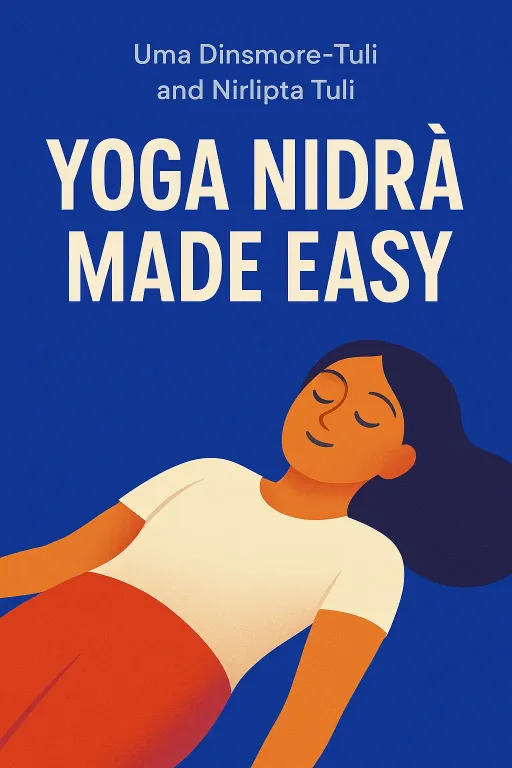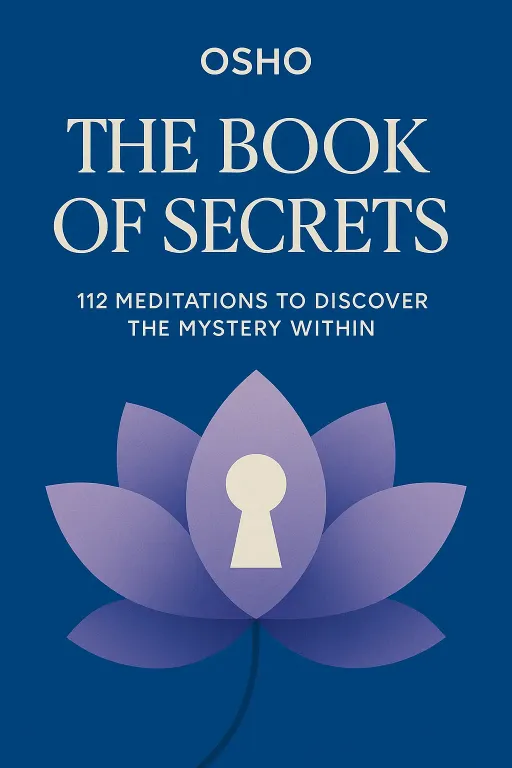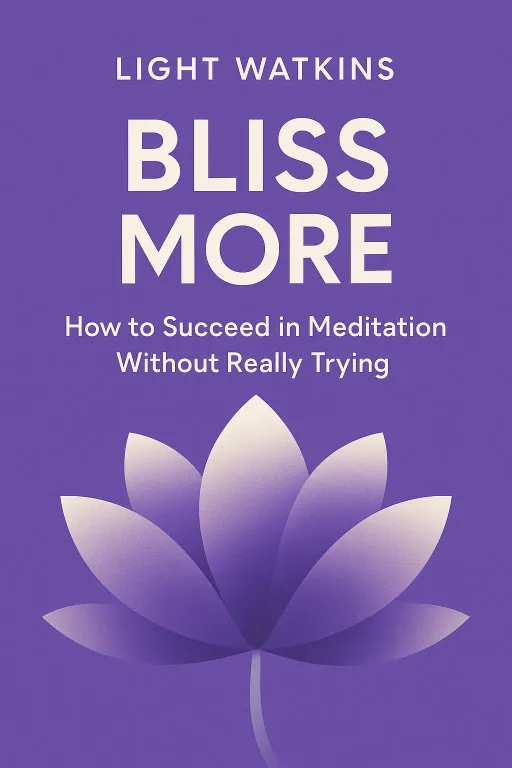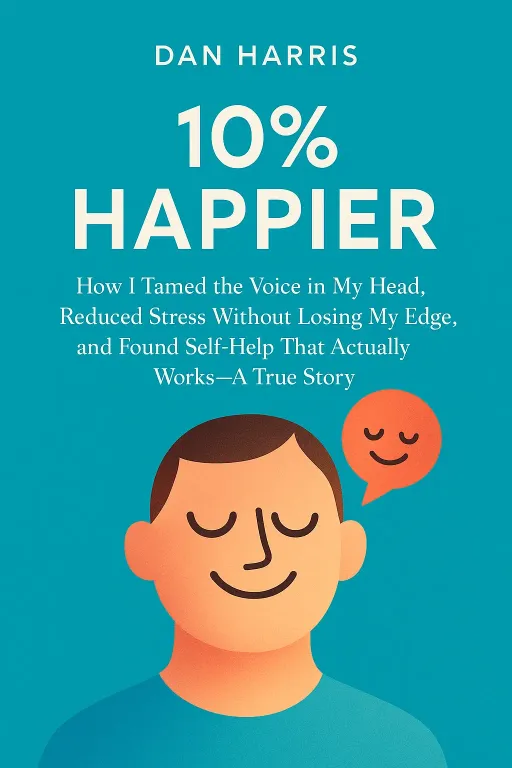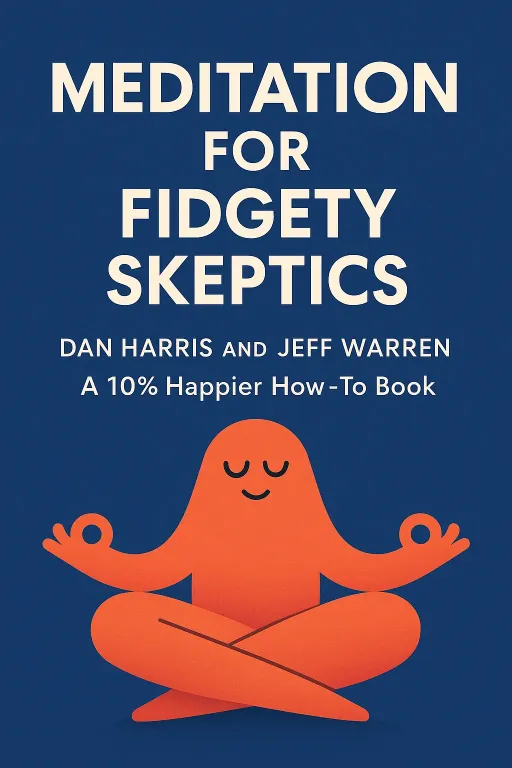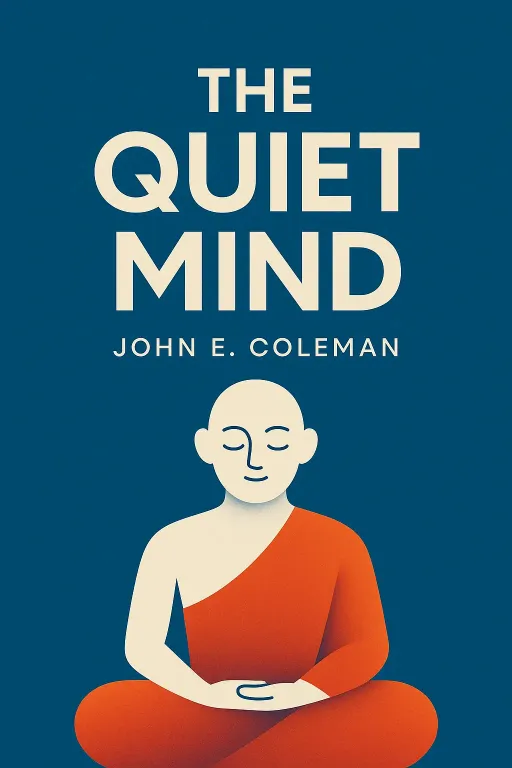
The Spy's Quiet Mind
13 minGolden Hook & Introduction
SECTION
Laura: We're often told to 'find our inner peace.' But what if the person who wrote the ultimate guide to a quiet mind wasn't a monk or a guru, but a CIA spy whose cover was just blown in the middle of the Cold War? Sophia: Okay, hold on. A CIA spy? That’s the last person I'd expect to write a book called The Quiet Mind. That sounds like a movie plot, not a spiritual memoir. Laura: It does, but it's a true story. And that's exactly what makes the book we’re diving into today, The Quiet Mind by John E. Coleman, so utterly fascinating. Sophia: So this is a real person, a real agent? Laura: A real agent. Coleman wasn't some lifelong spiritualist meditating in a cave. He was an American intelligence officer in 1950s Thailand, deep in the world of espionage and counter-insurgency. His quest for inner peace began only after his life of conflict and secrets completely fell apart. This isn't a theoretical book; it's a field report from the front lines of both geopolitical and spiritual warfare. Sophia: Wow. So this isn't about someone who was already peaceful trying to get more peaceful. This is about someone from a world of extreme stress and conflict trying to find an off-switch. Laura: Exactly. And his search didn't start with peaceful meditation. It started with something much, much stranger.
The Spy Who Sought Silence: From CIA Agent to Spiritual Seeker
SECTION
Laura: After his CIA cover was blown, Coleman found himself in Bangkok with a lot of time and a very unquiet mind. He didn't turn to a temple first; he turned to science, or what looked like it. He joined a psychical research group, full of doctors and academics, who were investigating things like hypnosis and extrasensory perception. Sophia: ESP? Like mind-reading? This story just gets weirder. Was he trying to find a new intelligence-gathering tool, or was this genuinely a spiritual search from the start? Laura: I think it was a bit of both! He was a practical, skeptical man. He wanted proof. And he got it in a very personal way. In one of the group’s meetings, a Thai doctor offered to demonstrate hypnosis. Coleman, ever the skeptic, volunteered. Sophia: Of course he did. He probably thought he could outsmart it. Laura: He did. The doctor hypnotized him and suggested his arm was becoming numb, like a piece of wood. Then, to prove it, the doctor took a sterilized hypodermic needle and pushed it right through a fold of skin on Coleman's arm. Sophia: No. Absolutely not. What happened? Laura: Coleman felt nothing. Zero pain. He was so astonished that after they woke him up, he challenged the doctor to do it again without hypnosis. The doctor obliged, and the moment the needle touched his skin, Coleman flinched back in pain. Sophia: Whoa. That’s chilling. It’s like his mind could just… turn off pain. That’s a superpower. It must have completely shattered his idea of what the mind is. Laura: It did. It was the first crack in his Western, rationalist worldview. He wrote that the experience showed him that these people in the East had an "insight into the secret workings of the mind which is not at all familiar to us in the West." It wasn't just about pain, either. He witnessed a young boy, blindfolded and hypnotized, who could perfectly replicate words being written on the other side of a blackboard. Sophia: Okay, the blackboard boy sounds like a magic trick. Was Coleman just gullible after a stressful career? It feels like a huge leap from 'hypnosis can block pain' to 'kids have psychic powers.' Laura: He was baffled, but the key for him wasn't whether it was magic. It was that the people around him—respected Buddhist scholars and doctors—saw it as a demonstration of the mind's untapped potential, something accessible through deep meditation. For Coleman, the spy, it was a clue. It suggested there was a hidden dimension to reality, and the key to unlocking it was controlling the mind. His search for a quiet mind wasn't about relaxation; it was about discovering what the mind was truly capable of when it wasn't consumed by conflict. Sophia: That makes so much more sense. He wasn't just seeking peace; he was on a mission to understand the ultimate human technology: consciousness itself. And after these bizarre experiences, I'm guessing he didn't just settle on one thing. Laura: Not even close. He basically went on a world tour of enlightenment.
The Spiritual Supermarket: A Tour of Eastern Wisdom
SECTION
Sophia: It sounds like he went on a spiritual shopping spree. A grand tour of gurus. Laura: That's the perfect way to put it! He became the ultimate spiritual tourist, but with the critical eye of an intelligence analyst. He was trying to find a system that worked. His first serious attempt was at a famous Thai monastery, Wat Mahatai. Sophia: And how did that go? Did he find instant bliss? Laura: It was, in his words, a "harrowing experience." The method was incredibly rigorous. He had to sit in the full lotus position for hours, which was agony for his Western body. The instruction was to be aware of every single sensation, every thought. But the only sensation he could focus on was the searing pain in his knees and the "unutterable boredom." He quit after a few days. Sophia: Honestly, that sounds like my personal nightmare. I can't even sit through a movie without fidgeting. So the austere, boot-camp approach to enlightenment was a bust. Where did he go next? Laura: He sampled pretty much everything the 1960s spiritual supermarket had to offer. He went to India and Japan. He met with D.T. Suzuki, the great Zen scholar, and tried to wrap his head around the intellectual paradoxes of Zen. Suzuki famously illustrated the gap between Eastern and Western minds with two poems. Sophia: Oh, I think I've heard of this. Laura: The Western poet, Tennyson, sees a flower and says, "I pluck you out of the crannies... I hold you here, root and all, in my hand... if I could understand what you are... I should know what God and man is." He has to dissect it to understand it. Sophia: Right, analyze it. Break it down. Laura: But the Japanese Zen poet, Basho, sees a flower and simply says, "When I look carefully, I see the nazuna blooming by the hedge!" He doesn't pluck it. He doesn't analyze it. He just... sees it. He becomes one with the experience. For Coleman, this highlighted a fundamental problem: his Western mind was trained to analyze, not to simply experience. Sophia: So Zen was too much of a brain-teaser for him. What about the other big one from that era? The Beatles' guru? Laura: Maharishi Mahesh Yogi and Transcendental Meditation, or TM. Coleman was there for its explosion in popularity. He saw it as this packaged, easy-to-digest version of meditation for the West. The Maharishi was teaching that you just repeat a mantra, and you'll find bliss. It was marketed as a simple, natural high—an alternative to the drugs that were becoming so prevalent. Sophia: The 'get enlightened quick' scheme. It's funny, this 'spiritual supermarket' feels so relevant today with wellness influencers selling everything from sound baths to ayahuasca retreats. Coleman was an OG spiritual tourist. Laura: He really was. He even investigated Tantrism in Nepal, the idea of using sexual energy for spiritual liberation. But he found it too wrapped in complex rituals. So you have all these paths: the painful austerity of the monastery, the intellectual puzzles of Zen, the pop-culture phenomenon of TM, the esoteric rituals of Tantrism. Sophia: And none of them worked for him. Why? They all promised some kind of peace. What was the missing piece? Laura: That is the perfect question. Because the answer, the real breakthrough, came from two people who completely upended his entire search. They taught him that the goal wasn't to find the right system at all.
The Breakthrough: Finding the Pathless Land
SECTION
Laura: The first key figure was the philosopher Jiddu Krishnamurti. Coleman had a chance encounter with him on a plane in India. He didn't know who he was, just that he was this serene, elderly man. Krishnamurti told him something that changed everything. He said, "Truth is a pathless land. You cannot approach it by any path whatsoever, by any religion, by any sect." Sophia: Wow. So after all this spiritual shopping, he meets a guy who tells him all the stores are selling the wrong thing. That the answer isn't in a store at all. Laura: Exactly. Krishnamurti argued that any system, any guru, any organized religion is a hindrance. It blocks you from seeing for yourself. This idea—that he had to stop looking for an external system and start looking inward without a map—primed him for his final, and most important, stop. He returned to Rangoon, Burma, to study with a meditation master named U Ba Khin. Sophia: And this is where it finally clicked? Laura: This is where the breakthrough happened. But it wasn't easy. U Ba Khin taught a practice called Vipassanā, which is about direct, experiential insight. Coleman committed to a ten-day silent retreat. The practice was simple: just observe the breath, and then observe any sensation in the body, moment by moment, without reacting. Sophia: That sounds simple, but I'm guessing it was incredibly difficult. Laura: It was brutal. He describes sitting in the sweltering Burmese heat, his body screaming in pain. But this time, instead of fighting the pain or trying to escape it like he did in the Thai monastery, he followed the instruction. He just observed it. He watched the sensation of heat, of aching, of itching, and he noticed something profound. Sophia: What did he notice? Laura: That the sensations were constantly changing. They would arise, become intense, and then fade away. Nothing was permanent. He was directly experiencing a core Buddhist concept called anicca, or impermanence. Sophia: Wait, so the secret wasn't to escape the pain, but to observe it so closely that you realize it's not a solid thing? That it's just a fleeting process? That’s so counterintuitive. Laura: It's completely counterintuitive. Our instinct is to push away pain and cling to pleasure. Vipassanā teaches you to do the opposite: to watch both with perfect equanimity. On one of the final days, he was overwhelmed by a wave of intense heat. He felt like he was being consumed by fire. But instead of panicking, he just kept observing the sensation. And then... it broke. Sophia: What does that mean, 'it broke'? Laura: He describes it as a moment where his mind and body were transcended. The resistance stopped. The desire for the heat to go away vanished. And in its place was an "indescribable calm... a peace which passes all understanding." He had finally found the quiet mind. It wasn't an empty mind, or a mind free from problems. It was a mind that had stopped fighting with reality. Sophia: That’s incredible. So the quiet mind isn't about having no thoughts or no pain. It's about not being bothered by them because you see them for what they are: temporary, passing clouds. Laura: That's the heart of it. He realized that all suffering comes from our craving for things to be different than they are, or our aversion to things as they are. When you can observe your own reality—good and bad—without that craving or aversion, the conflict ceases. The mind becomes quiet.
Synthesis & Takeaways
SECTION
Laura: And that's the core of the book, and what makes it so powerful. The quiet mind isn't some mystical, blissed-out state you achieve by escaping the world. It's a state of radical acceptance you find right in the middle of it. Coleman's journey, from a CIA spy surrounded by external conflict to a meditator observing his own internal conflict, shows that peace isn't found by avoiding suffering. It's found by understanding its very nature—that everything, even our deepest pain, is impermanent. Sophia: It's a profound shift in perspective. We spend so much of our lives trying to control everything, to fix our problems, to eliminate discomfort. But Coleman's story suggests the real path to peace is to stop controlling and start observing. Laura: He learned that the ultimate freedom is not freedom from suffering, but freedom in the midst of suffering. It's the ability to sit in the fire and not be burned, because you realize the fire is just a temporary sensation. Sophia: It makes you wonder what we're all running from. The book suggests that if we just stopped and watched the 'pain'—the anxiety, the stress, the restlessness—without judgment, we might find the quiet we're looking for. It poses a really powerful question for all of us: What conflict in your own life are you trying to escape, instead of just observing? Laura: That's a powerful question to sit with. And it’s a journey that doesn't require a trip to Burma, just a willingness to be still and look within. We'd love to hear your thoughts on this. Find us on our socials and share what resonated with you from Coleman's incredible journey. Sophia: This is Aibrary, signing off.
